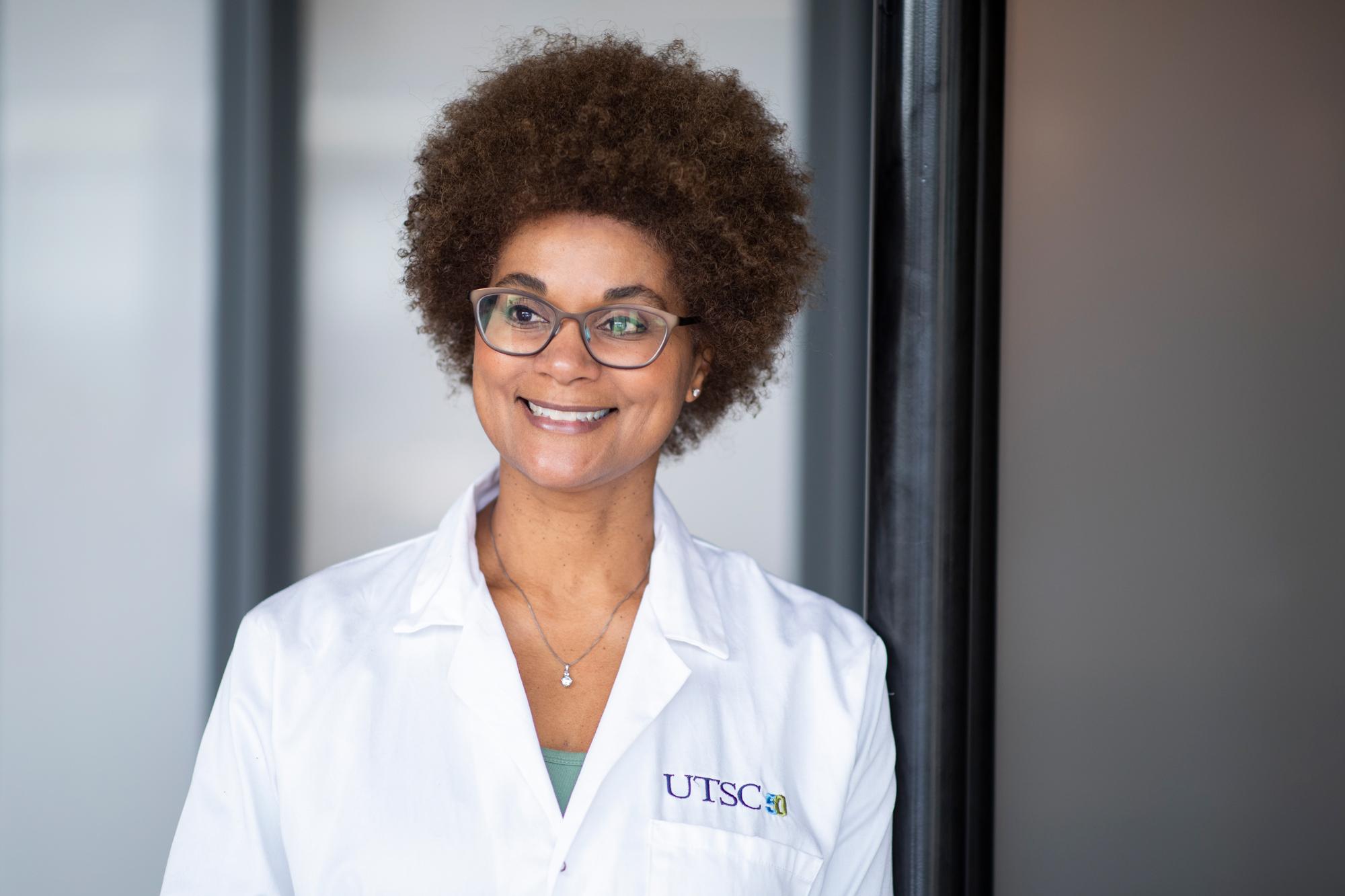Maydianne Andrade, renowned spider researcher and equity advocate, earns U of T’s top academic rank

There was a time in her career when Maydianne Andrade didn’t dwell on the issue of representation in science.
That began to change in 2013 after taking an implicit association test. The results surprised her.
“I found I had negative associations with Blackness and positive associations with whiteness,” says Andrade, who was born in Jamaica before immigrating to Vancouver with her parents at age three.
“After spending a lot of time and energy trying to dispel the results and debunk the test, I realized it was something I should pay more attention to.”
Andrade, who was recently appointed University Professor, a designation that represents the most prestigious academic rank at U of T, turned down opportunities for years to talk about her experience.
“Being a Black woman in my position meant I was unusual. I was constantly being asked to give talks about equity and diversity, but I always said no because it wasn’t in my area of expertise,” she says.

The test made her interested in the research literature about equity and representation, and she began to appreciate the measurable effect of bias — including its influence on how institutions function.
It’s a big reason why she founded the Toronto Initiative for Diversity and Excellence (TIDE) in 2016. Working alongside a group of faculty from various academic backgrounds, the organization provides data-informed talks, workshops and advising on issues related to bias and inclusion, and how it can influence decisions around funding, promotions and hiring. She says a data-driven approach helps counter hesitancy and scepticism about discrimination.
In July 2020, she co-founded and became inaugural president of the Canadian Black Scientists Network (CBSN), a national organization dedicated to fostering equity and belonging for Black students and professionals in science, technology, engineering mathematics, and medicine/health (STEMM) fields. It has already grown from 24 to more than 500 members and is comprised of Black researchers, graduate students and allies working in STEMM-related fields.
“The goal is to help open doors for Black researchers,” says Andrade, who also served a five year term as the vice-dean, faculty affairs and equity at U of T Scarborough.
The network held its first conference in February, which included a greeting from Prime Minister Justin Trudeau. She says the network plans to apply for grants through federal research funding agencies so it can host the conference annually.
“For meaningful change to happen, it will require recognizing that stereotypes, social norms and expectations do influence scientists, and that can be a difficult thing for many people to accept,” says Andrade, who credits non-BIPOC allies in helping to fulfill the mandate of both TIDE and the CBSN.
The goal is to help open doors for Black researchers
She adds that being an ally doesn’t necessarily equate to activism.
“My research mentors were white and they were crucially important in making me feel like I belonged.”
Her PhD supervisor at U of T Mississauga, Professor Emeritus Darryl Gwynne, took extra steps to make her feel comfortable. He made sure the field site where Andrade was working was in a secure location, that it was fenced in and well lit.
“He didn’t make a show of it, or even let me know, he just went out of his way to make sure I was working in a safe environment,” she says. “I was working alone at night, so allowing me to just focus on my work was huge.”
In addition to advancing equity in academia, Andrade is also proud of helping push knowledge about black widow spider mating behaviour and evolution from a curiosity into a well-developed scientific model.
Science education and communication have always been important to her. She has volunteered for countless public events teaching science to children and encouraging young women to pursue careers in STEM. She has also hosted an episode of CBC’s The Nature of Things as well as a podcast during the pandemic.
“My research in limited in terms of its application — I’m not curing diseases or building machines,” she says. “I wanted to help in other ways and that includes sharing my knowledge of the natural world and maybe igniting a passion for science among children.”
As for the next chapter of her career, Andrade looks forward to continuing mentoring the next generation of spider researchers in her lab. She also wants to continue growing the CBSN so it becomes stable and self-sustaining.
“By gaining support and growing the network nationally, I hope it can continue the work of supporting young Black scientists long after I’m gone,” she says.
